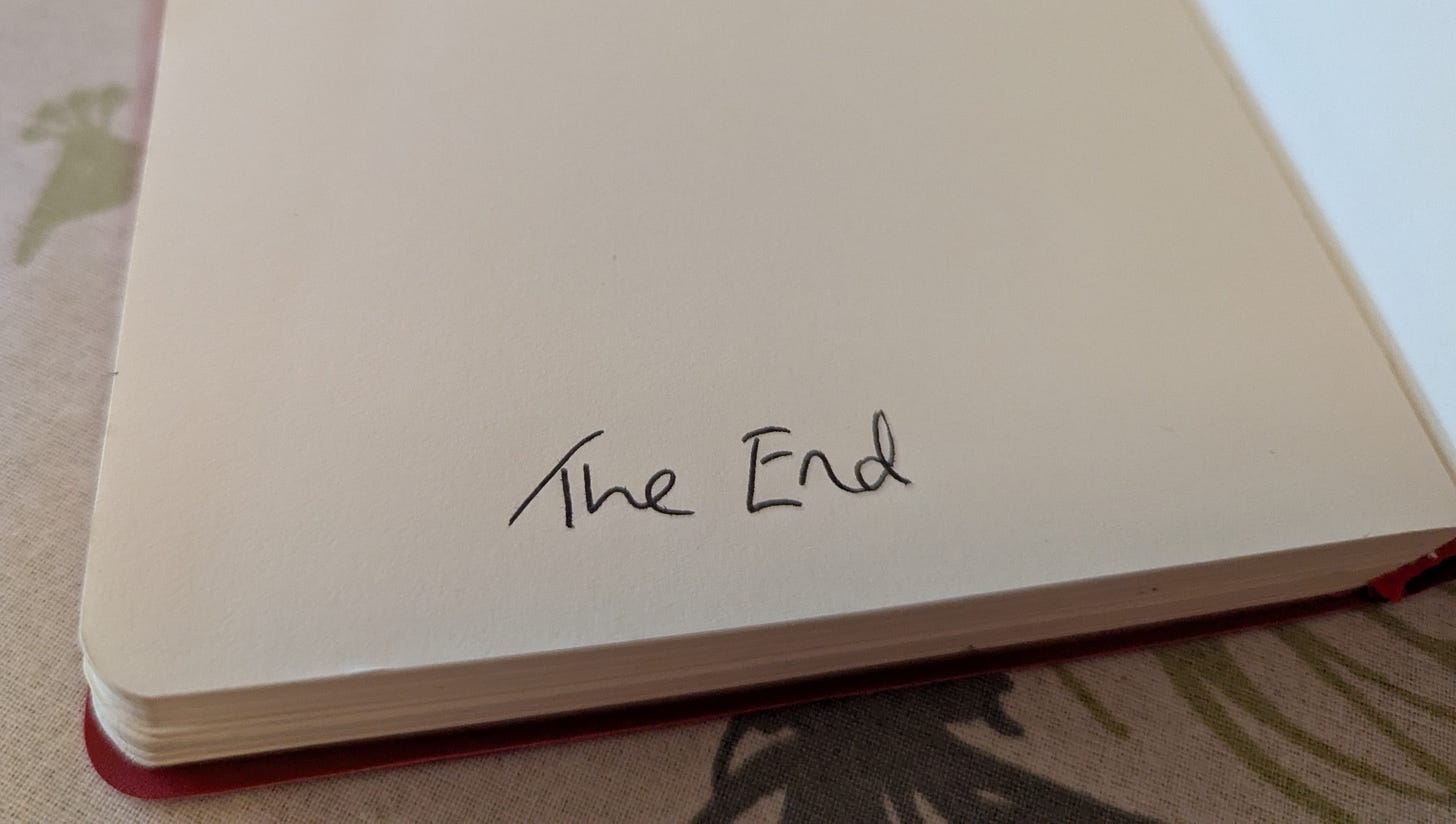Welcome readers and thank you for joining me.
At this time of year, endings are on my mind. The end of autumn, the end of term, the end of the year — these endings are also beginnings: of winter, of the holidays, of the new year. But when a poem ends it does not transition to something else, so it needs an ending that feels finished or at least deliberately positioned.
I find endings hard to write. I tend to come up fairly easily with the beginning and the middle of a poem and then spend a long time deciding on the title and the ending. Sometimes these start out as the same thing so one of them has to change. Sometimes a tweak to the ending brings the whole poem together and other times the whole poem needs to turn upside-down to get the ending to work. Sometimes, I just get completely stuck on how to end.
I like endings which lead the reader to reflect like the rueful question of Robert Hayden’s Those Winter Sundays, the bittersweet nostalgia of the final lines permeating back through the rest of the poem:
“What did I know, what did I know of love’s austere and lonely offices?”
In contrast, in The Bight, Elizabeth Bishop leaves the reader stuck in a bleak moment:
“All the untidy activity continues, awful but cheerful.”
It’s painful how she resists any concessions to the expectation of a hopeful ending but it works for a poem which firmly attaches us in a time and a place.
Then there’s the ironic twist, which Margaret Atwood pulls off perfectly in Siren Song. You really have to read the whole poem to make the most of this one.
Recently, an editor suggested cutting the last two lines of a poem of mine which they had accepted for publication. I had reworked the poem several times but I’d kept hanging onto those lines through every version. When the editor asked if the final lines could be cut, I realised they were completely right — with the rewrites I had already made, the poem naturally ended two lines earlier. I don’t know why I hadn’t spotted it before. Sometimes, the end is there all along, waiting for you.
More thoughts on endings:
Kristen Tracey makes a fair point in Happy Endings.
Of course, reading online makes you want to scroll down to the end of almost anything. That’s why it’s better to read books.
I finished reading Samantha Harvey’s Orbital. It’s so lyrical it’s almost like a prose poem rather than a novel.
Coincidently,
has also been thinking about endings.





I find the beginning and the end the easiest (even though realistically I edit them both, repeatedly, before the 'whole' is finished). It's the second part of the middle that is tricky for me - when I'm so deeply in the flow that I am also liable to being distracted into tangential ideas. Sometimes these can be reined-in usefully, other times they plant the seeds for a new piece. But most often they digress!
Perfectly timed and so much to consider. Love these poems as examples. Can't wait to read your published poems minus the last two lines. How do I know where to end? I think I sense it. I am better at endings than beginnings or middles. I might attribute it to early losses or a fight mentality (over flight), but mostly it's probably luck.